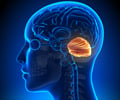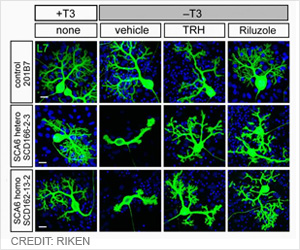A Phase 2 clinical trial evaluating the efficacy and safety of L-arginine in treating Spinocerebellar Ataxia Type 6 (SCA6) shows promising results.

New Drug Candidate for Spinocerebellar Ataxia ~Clinical Trial Results of L-Arginine for Spinocerebellar Ataxia Type 6~
Go to source).
‘Did you know?
Spinocerebellar ataxia is rare and its global prevalence is 3 in 100,000, however, a wide regional variation exists. #medindia # spinocerebellarataxia #ataxia’





Spinocerebellar ataxia is rare and its global prevalence is 3 in 100,000, however, a wide regional variation exists. #medindia # spinocerebellarataxia #ataxia’
Advertisement
I. Background of the Study
Spinocerebellar ataxia (SCA) is a neurodegenerative disorder affecting the cerebellum, a part of the brain responsible for coordinating movement. Symptoms include difficulties with balance, coordination, and speech (ataxia symptoms). In Japan, approximately 30,000 people are affected by SCA, with one-third of cases being hereditary. Many hereditary SCAs are classified as polyglutamine diseases, a group of disorders caused by proteins with abnormal long polyglutamine (polyQ) tracts. These proteins accumulate within nerve cells, forming aggregates that are thought to contribute to cell dysfunction and disease progression. Research by Professor Osamu Onodera at Niigata University and Professor Yoshitaka Nagai at Kindaii University identified L-arginine, an amino acid, as a promising compound that inhibits polyQ protein aggregation. In animal models of polyglutamine disease, L-arginine has shown therapeutic potential. Since L-arginine is already an approved medication, the team decided to explore its safety and efficacy as a potential treatment for polyglutamine diseases in humans through a clinical trial.Advertisement
II. Overview of the Study
This study was designed as a multicenter, placebo-controlled, double-blind, randomized Phase 2 trial to evaluate L-arginine’s efficacy and safety in SCA6, a subtype of SCA with relatively high prevalence and uniform symptom presentation in Japan. Conducted from September 2020 to September 2022, the trial involved five institutions in Japan: Niigata University, National Center of Neurology and Psychiatry, Institute of Science Tokyo, Osaka University, and Kindai University. Forty patients with SCA6 were recruited and randomly assigned to receive either L-arginine or a placebo. For 48 weeks, 20 patients received L-arginine while the other 20 received placebo. This Phase 2 trial was exploratory, with a primary aim to observe safety and preliminary efficacy in a relatively small sample. The trial assessed treatment efficacy using the Scale for the Assessment and Rating of Ataxia (SARA), a standardized tool for evaluating ataxia severity, especially in cerebellar diseases. Baseline and 48-week follow-up SARA scores were compared to measure changes in ataxia symptoms.Advertisement
III. Study Results
After 48 weeks, the L-arginine group showed an improvement of 0.96 ± 0.55 points in mean SARA scores, indicating a mild reduction in ataxia symptoms. In contrast, the placebo group experienced a mean worsening of 0.56 ± 0.55 points in SARA scores. This translates to an approximate 1.5-point treatment effect over one year. However, the observed difference between the two groups did not reach statistical significance (p=0.0582), which suggests that while there may be a positive trend, further investigation is needed to confirm efficacy. In terms of safety, two serious adverse events potentially associated with the study drug were reported. These included one case of pneumonia that resulted in fatality and one case of liver impairment that resolved.IV. Future Directions
The study suggests that L-arginine may offer certain therapeutic benefits for patients with SCA6, as indicated by the observed improvement trend in SARA scores. However, due to the lack of statistical significance, larger and more robust Phase 3 trials are necessary to definitively establish efficacy. Such trials would provide more reliable evidence for the use of L-arginine as a treatment for spinocerebellar ataxia and may clarify its long-term safety profile in this population. Should L-arginine prove effective in a larger cohort, it could become an important therapeutic option, addressing an unmet need in managing this progressive neurodegenerative disorder.Reference:
- New Drug Candidate for Spinocerebellar Ataxia ~Clinical Trial Results of L-Arginine for Spinocerebellar Ataxia Type 6~ - (https://www.bri.niigata-u.ac.jp/en/research/result/002217.html)
Source-Eurekalert












